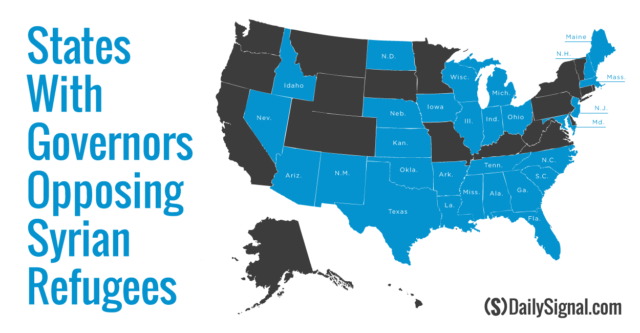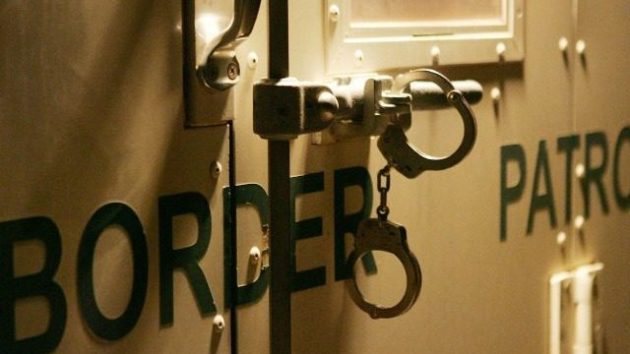Do You Lock Your Door at Night?
If you have an open mind, and want to analyze the travel ban from one professional perspective, read on. If not, close your mind – at our nation’s peril.
What is the travel ban? You may try to read it before you judge it.
Summarized, the U.S. government will not allow travelers from 7 countries of “particular concern” into the United States – Iran, Iraq, Syria, Libya, Somalia, Yemen, and Sudan for 90 days. All refugees are halted for 120 days, Syrian refugees indefinitely.
Why? To evaluate the post 9/11 vetting processes required to enter the U.S., in order to protect U.S. citizens from violent extremist attacks. Questions that must be addressed: 1. Is there a threat? Is there weakness in the system? 2. How can we make us safer?
The Obama administration labeled 3 of these countries as states sponsors of terrorism – Iran, Syria and Sudan. With the exception of Iran, each of the countries has a failed central government or is locked in deadly civil war. Obama ordered attacks on 6 of them.
Is there a threat? Sophisticated and well-resourced Islamic extremists, including ISIS and Al Qaeda, are fighting on their territories. Thousands of men, women and even children have planned, trained and sworn oaths to kill Americans as a religious duty. Their numbers have grown exponentially in the last 7 years – while we tried to be accepting. It is not easy to distinguish the fighters from the innocent.
Is there a weakness? As a former Counter-Terror professional, Intelligence Officer and Security Assistance Officer at multiple US Embassies, I can say with high confidence that the visa system still has weaknesses. The system still depends on people. People make mistakes. A few are corrupt.
According to the 9/11 Commission report, the attack plotters submitted 23 visa requests, 22 were approved. Only two terrorists were actually interviewed, and a single consular officer issued 11 of the 19 hijackers’ visas. The commission believed that without these visas, the plot would have likely failed.
After the devastation of 9/11, the visa process changed dramatically. It now depends on much improved information sharing and cooperation among many federal agencies, foreign governments, DHS Visa Support Units (VSUs), data bases and biometrics. Many of my U.S. State Department friends, government bureaucrats, and vocal partisan activists defend the process, and say we owe people entry.
However, the system depends on the effectiveness of the intelligence community. It depends greatly on cooperation with the traveler’s host nation government to provide accurate information, background checks and criminal histories. And finally, it rests on the consular officer who issues the visa. The complex system is only as good as the data collected, and the people involved.
These 7 states have either supported terror, or have very weak institutions torn by war. The U.S. doesn’t have effective relations with their police, intelligence or military. No one is taking biometric scans of every teenage ISIS fighter, or female jihadists. Often a State Department junior officer, doing his or her mandatory one-time consular tour, approves a visa. For these places of concern, the consular is probably not even in the applicant’s home country.
Consular officers are fallible; a few are convicted of fraud and corruption. Cut every year. My wife’s former boss, Pat Raikes, the senior consular in Beirut just before 9/11, traded airline tickets for visas. In 2015, Michael Sestak, pled guilty to trading over 500 visas for more than $3 million. Prior to the Foreign Service, Sestak was a police officer, Federal Marshall, and Navy Intelligence Officer. Apparently Shayna Steiner, the Foreign Service Officer who issued those 11 hijackers’ visas, still works for the Department of State. She may not be a criminal, maybe a good person – but she made mistakes that cost thousands of lives.
The intelligence community missed 9/11 (2,996 killed, 6,000+ wounded.) Good people missed clear terror ties to the San Bernardino shooters (14 killed, 22 wounded.) FBI agents interviewed, investigated and released the ISIS aligned Pulse Nightclub shooter – twice (49 killed, 52 wounded), and the recent Ft. Lauderdale shooter (5 killed, 6 wounded.) The FBI knew of the Boston bomber (3 killed, 264 wounded.) US Army Major Nadal killed 14 soldiers after openly briefing other Army psychologists on his growing animosity and fundamentalist awakening. In each of these cases, the system failed. Good people missed it – or were too arrogant, incompetent, or in fear of politically-correct retribution to act.
Every consular knows applicants lie, even if they are not terrorists. Good people will say anything to get to America. You can bet trained ISIS or Al Qaeda fighters will lie better. It is hard to sort the innocent from the evil. Ultimately the system rests on the competence and personal judgments of thousands of dedicated but imperfect people, often with flawed data. The vast majority of our people are fantastic professionals, but Americans pay dearly for the bad ones and the mistakes.
How can we make us safer? We must listen to what we don’t want to hear, and wish wasn’t true – accept that many religious fundamentalists want to destroy America, whether you believe it is America’s fault or not. Accept that we have weaknesses and can improve our system. Accept that our elected government has the fundamental responsibility to protect all U.S. citizens, and our constitution above all else – not foreign citizens or failed states.
We should demand reviews like this one. We must update our processes continually. We must ensure our good people are alert and accountable, or we guarantee another 9/11, Boston or San Bernardino. If our enemies have their way, the next attack will be much worse.
We should protect our borders and enhance our safety, just as we lock our doors when we know there is danger. Leaving your door open doesn’t keep bad guys away, it invites them in.
EDITORS NOTE: The featured image is courtesy of Breitbart. In wake of Paris terrorist attacks, below is a map of the states shutting their doors to Syrian refugees.

Kentucky Gov.-elect Matt Bevin, who took office on December 8th, 2016, also said he opposes resettlement efforts.



Leave a Reply
Want to join the discussion?Feel free to contribute!